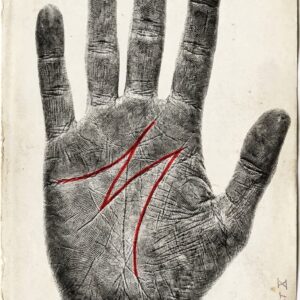For nearly a decade, Jenny Millers lived a quiet life in a small Kansas town. At twenty-nine, she worked at Rosie’s Diner, the kind of narrow little place tucked between a laundromat and a hardware store. Every morning she tied her apron, filled her coffee pot, and greeted the handful of regulars with her usual gentle smile.
To her customers, Jenny was dependable and cheerful. But when the clatter of dishes faded, her life was still and lonely. Her parents had passed when she was young, and her aunt — the woman who raised her — lived far away. Jenny rented a modest apartment above the pharmacy. Few neighbors even knew her name.
Her life was steady, almost invisible. Until the morning she noticed a boy sitting alone in the corner booth.
The Boy in the Corner
He couldn’t have been more than ten. Every morning at 7:15, he slipped quietly into the same booth. His backpack sagged, his head bent over a worn paperback. He never ordered more than a glass of water.
For days Jenny watched. He gave a polite nod when she set down the glass, a whispered “thank you,” then silence. He stayed forty minutes before disappearing into the crowd of kids heading to school.
On the fifteenth day, Jenny couldn’t ignore it anymore. She carried a plate of pancakes to his table.
“The kitchen made an extra,” she said softly. “Better you eat it than throw it away.”
The boy hesitated, then hunger won. Ten minutes later, the plate was spotless.
From that morning on, it became their unspoken ritual. Pancakes, eggs, oatmeal on cold days. He never asked. She never explained. But every plate was eaten with quiet gratitude.
Whispers and Warnings
Not everyone approved. Regulars began to notice.
“Who’s that boy?” asked Harold, the retired postman. “Never seen his parents.”
Jenny admitted, “I don’t know. But he’s hungry.”
Some were less kind. “Kids today just expect handouts,” one customer sneered. Even Kathy, the gentle cook, warned, “Don’t get attached, Jenny.”
But Jenny remembered her own years of hunger after losing her parents. She smiled and replied, “No one becomes poor by sharing a meal.”
Paying the Price Herself
One day, Mark the manager pulled her aside.
“I know what you’re doing. We can’t run a business giving away free food.”
Jenny didn’t flinch. “Take it out of my tips. Every plate.”
He sighed. “Your tips barely cover your rent.”
“It’s my choice,” she said firmly.
And so, every morning, part of her small paycheck went to feeding that boy.
The Empty Booth
Then one Thursday, he didn’t come.
Jenny poured his glass of water anyway. She placed pancakes at the booth. But the seat stayed empty.
The next day, the same. Then a week. Then two. The absence weighed on her. She hadn’t even asked his name, but the diner felt colder without him.
Online, someone mocked her kindness with a photo of the empty booth: Rosie’s Diner feeds ghosts now. The cruel comments stung.
That night, Jenny reread an old entry from her father’s journal. He had been an Army medic: Shared half a ration with a boy today. Risky, maybe. But hunger is hunger. No one becomes poor by sharing a loaf.
Her father’s words reminded her—kindness is never wasted.
The Arrival of the SUVs
On the twenty-third day of his absence, something extraordinary happened.
At 9:17 a.m., four black SUVs with government plates pulled into the lot. Soldiers stepped out, moving in perfect formation. A tall man in a decorated Army uniform entered the diner.
“Who’s Jenny?” he asked.
Heart pounding, she raised her hand. “I am.”
He approached. “Colonel David Reeves, U.S. Army Special Forces. I’m here because of a promise.”
The diner fell silent.
The Letter
“The boy you fed,” he said. “His name is Adam Thompson. His father was Master Sergeant James Thompson — one of the finest men I ever served with.”
Jenny’s breath caught. “Is Adam alright?”
The Colonel nodded. “He’s safe now with his grandparents. What you didn’t know is that while his father was deployed, his mother left. Adam was surviving on his own, too proud to ask for help. Until you.”
He handed her an envelope. “Two months ago, Sergeant Thompson fell in Afghanistan. In his final letter, he wrote: If anything happens to me, please thank the woman at the diner who fed my son without asking questions. She didn’t just give him food — she gave him dignity.”
Jenny’s hands shook as she read the soldier’s words. Tears blurred her vision.
Then, in unison, every soldier in the diner saluted her. The customers rose in silence. Jenny — the quiet waitress — now stood in the center of honor.
A Town Transformed
The story spread quickly. The same people who had doubted her now celebrated her. Rosie’s Diner placed a plaque at Adam’s booth:
Reserved for those who serve — and the families who wait.
Veterans began visiting, leaving coins, patches, and notes at the table. Strangers tipped more generously, many adding messages like, “Thank you for reminding us what matters.”
Weeks later, Jenny received a handwritten letter.
Dear Miss Jenny,
I didn’t know your name until that day. But every morning, you were the only one who saw me. Dad told me heroes wear uniforms. But sometimes, I think they wear aprons too. Thank you for the pancakes. Thank you for seeing me when I felt invisible.
Your friend, Adam Thompson
Jenny framed the letter, keeping it behind the counter as a reminder of the quiet power of compassion.
The Legacy of Kindness
Months passed, but the impact remained. Rosie’s Diner started a fund for military families. Even Mark, once doubtful, pledged to match donations. A veteran gifted Jenny a challenge coin engraved with Semper Memor — Always Remembering.
The diner added a sign to the window: Whoever you are, whatever you can pay — no one leaves hungry.
Jenny carried the coin in her pocket each day, a small weight with great meaning. She thought often of Adam, and hoped he was healing with his grandparents.
Because the truth was timeless: not every act of kindness is remembered, but every act matters.
Jenny never set out to be a hero. She simply chose to feed a hungry child. And in that simple choice, she changed not just one life, but an entire community.
What do you think — can one small act of kindness change the world around us? Share your thoughts below and help keep Jenny’s story alive.





